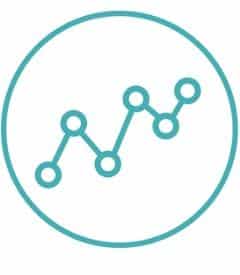MANAGEMENT REPORTS
If you can’t measure it, you can’t manage it. —Drucker
PracticeSuite offers over 140 essential management reports. Here we showcase the most widely used reporting capabilities of our Practice Management Software system. A detailed description and PDF are available for over 31 mission critical reports below including: Front office (5 reports), billing (5), revenue cycle (4), financial (12 reports) and productivity reports (4).
REPORTS REPORTS REPORTS!
Practice Management
PracticeSuite’s complete medical office management platform is a unified, end-to-end practice management software and EHR clinical software system that improves office efficiency and collection performance while proactively eliminating claim errors and denials.
For Office Managers and Billing Managers who like rolling up their sleeves and getting their hands a little dirty, we offer a sandbox account that affords complete evaluation of our Schedule and Billing system. No purchase required. No obligation.
Many time-intensive administrative tasks can be streamlined and simplified using the reporting features built into our practice management system—140 management reports from scheduling staff and patient appointments, reconciling cash payments and deposits, to insurance billing and managing denials . The first question to ask is whether or not your present office software has strong revenue cycle and financial management features with detailed reporting in all areas that require tight management.
If it doesn’t, according to AMA and MGMA, it might be time to find one that does. Practice Management options can be stand-alone programs or modules of larger EHR systems; but as the experts at Information Week say, the strength of the underlying PM system often makes or breaks the enterprise.
Patient Satisfaction Tied to Practice Management?
Effective practice management solutions can improve patient follow-up and boost patient satisfaction scores. Increasingly, CMS is rewarding medical practices for higher scores on patient satisfaction surveys and positive performance on the quality of the care provided. Many physician groups are or will be affected financially by this progressive change toward reporting on patient satisfaction, either because they are principle owners in a group or because they participate in risk-sharing financial partnerships with hospitals.
Reaching out to patients goes beyond asking how they’re doing. In many cases, it means gearing up for patient collections, especially with increasingly high co-pays and deductibles. With money at stake, providers should opt for a more enterprise oriented practice management system that offers automated electronic communication with patients for effective follow-up. And so proactive patient satisfaction circles back to practice management, and the statement that the strength of the underlying PM system often makes or breaks the enterprise.





